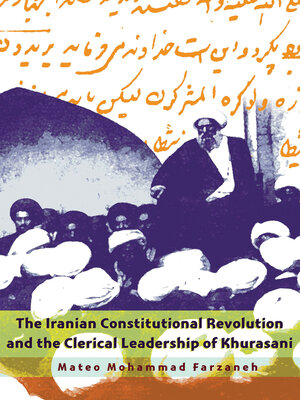The Iranian Constitutional Revolution and the Clerical Leadership of Khurasani
ebook ∣ Modern Intellectual and Political History of the Middle East
By Mateo Mohammad Farzaneh

Sign up to save your library
With an OverDrive account, you can save your favorite libraries for at-a-glance information about availability. Find out more about OverDrive accounts.
Find this title in Libby, the library reading app by OverDrive.



Search for a digital library with this title
Title found at these libraries:
| Library Name | Distance |
|---|---|
| Loading... |
The Iranian Constitutional Revolution was the twentieth century's first such political movement in the Middle East. It represented a landmark in Iranian history because of the unlikely support it received from Shi'ite clerics who historically viewed Western concepts with suspicion, some claiming constitutionalism to be anti-Islamic. Leading the support was Muhammad Kazim Khurasani, the renowned Shi'ite jurist who conceived of a supporting role for the clergy in a modern Iranian political system.
Drawing on extensive analysis of religious texts, fatwas, and articles written by Khurasani an other pro- and anti-constitutionalists, Farzaneh provides a comprehensive and illuminating interpretation of Khurasani's religious pragmatism. Despite some opposition from his peers, Khurasani used a form of jurisprudential reasoning when creating shari'a that was based on human intellect to justify his support of not only the Iranian parliament but also the political powers of clerics. He had a reputation across the Shi'ite community as a masterful religious scholar, a skillful teacher, and a committed humanitarian who heeded the people's socioeconomic and political grievances and took action to address them. Khurasani's push for progressive reforms helped to inaugurate a new era of clerical involvement in constitutionalism in the Middle East.







